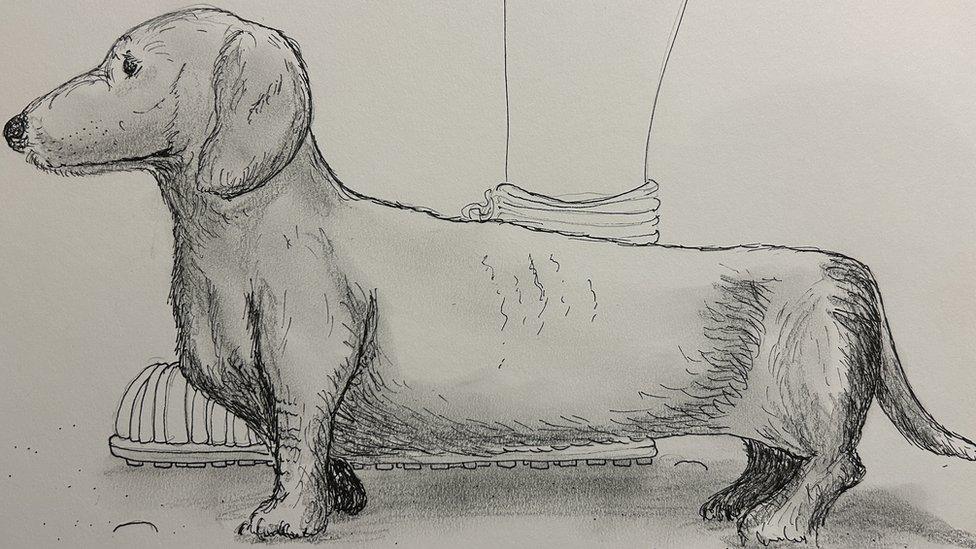Wittenham Clumps dig reveals Iron Age blacksmith workshop
- Published
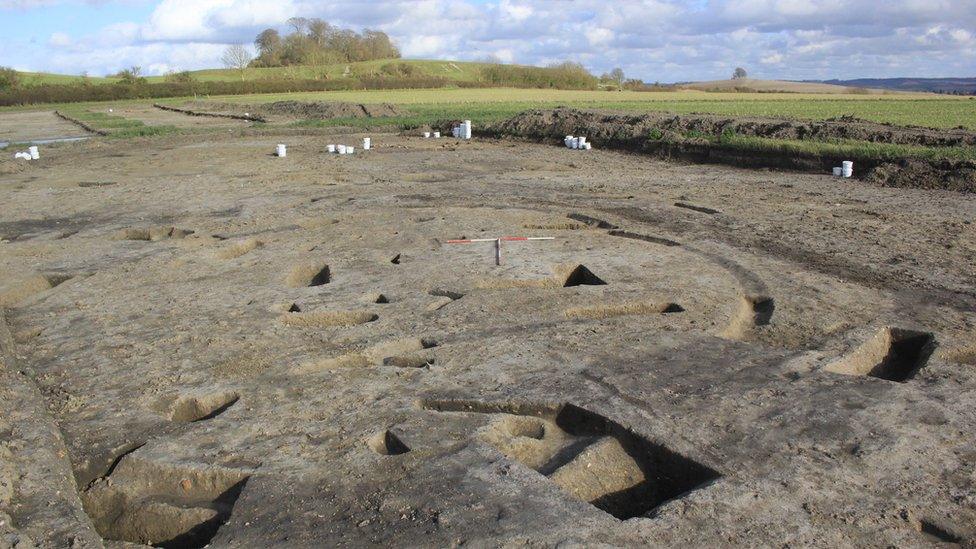
Excavation work began at the site in 2018
A 2,700-year-old Iron Age blacksmith workshop unearthed in the Oxfordshire countryside has been described as an "exceptionally rare" find by experts.
The site was excavated at the headquarters of environmental charity Earth Trust at Wittenham Clumps, near Abingdon.
The dig found artefacts including hearth lining and an intact tuyere, part of the ironworking process.
The Earth Trust said it revealed "more of the ancient mysteries" of the area.
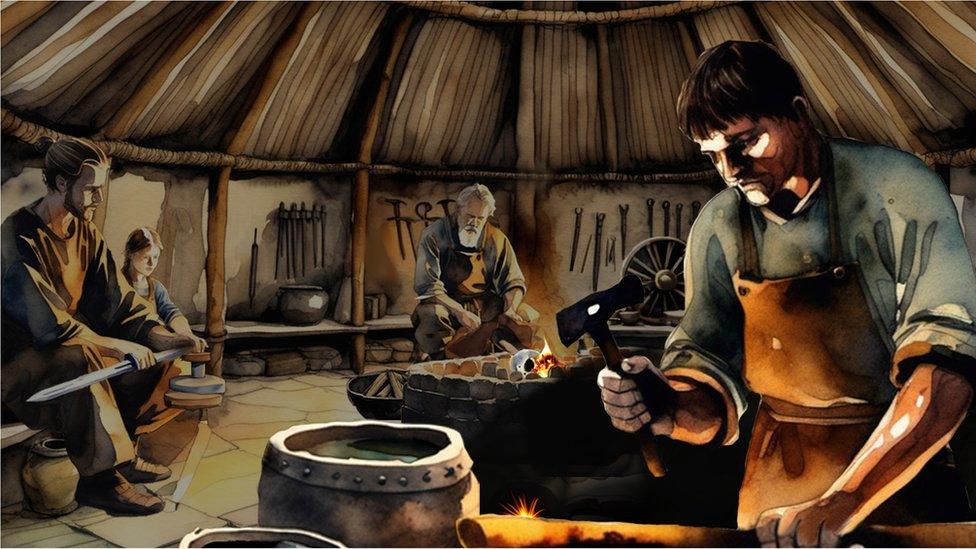
An artist's impression shows what the workshop would have looked like
The site is close to an area that previously yielded evidence of Roman, Bronze Age and Iron Age settlements.
Archaeologists from DigVentures, which carried out the excavation between 2018 and 2020, said they had discovered almost every component of the blacksmith's workshop.
These included the building, internal structures, hearth lining, tuyere and even tiny bits of metal that fly off when the blacksmith is hammering the metal.
Radiocarbon dating revealed the smithy dated from 771-515 BC, soon after ironworking first arrived in Britain around 800 BC.
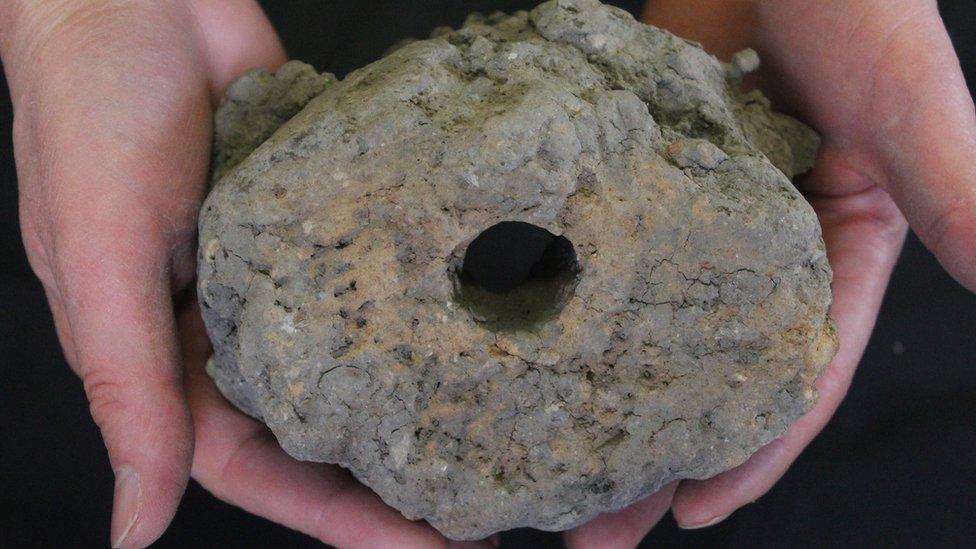
A rare example of an Iron Age tuyere was found
Gerry McDonnell, the archaeometallurgical specialist who examined the finds, said the intact tuyere - a pipe used to to blow air into a forge - was one of the few known examples of its kind in Europe.
"The fact that it dates not just to the Iron Age, but to the first few centuries of ironworking in Britain, is remarkable," he said.
"What's more, the size of it suggests we're looking at a hearth that was much larger and more specialised than that of your average village smithy.
"The fact that this early Iron Age smithy had a specialist tuyere shows us this was much more likely to have been a serious operation by a highly skilled, elite, or master blacksmith."
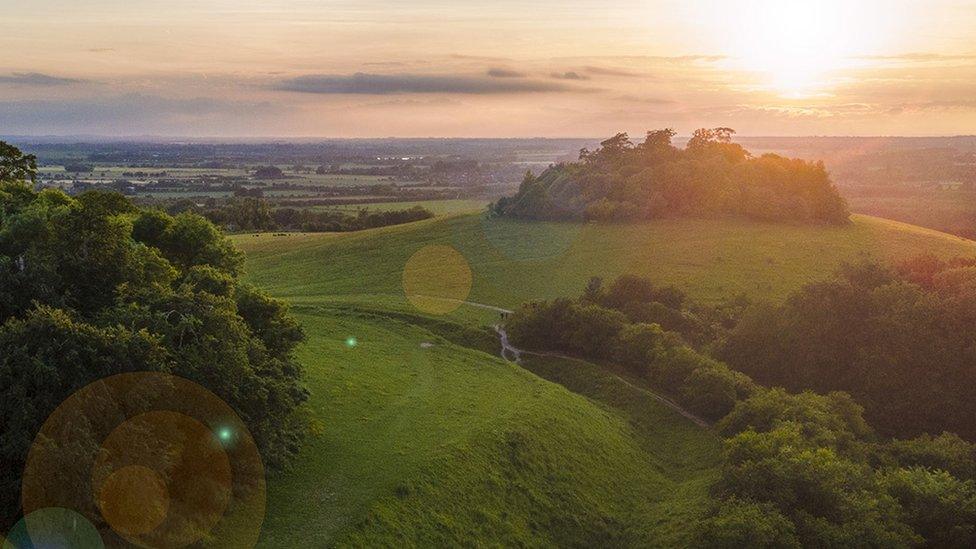
Affectionately known locally as "The Clumps", the site is owned and managed by Earth Trust
He said it would have been used to make swords, tools, wagon wheels, and other high-value objects.
Nat Jackson, site director at DigVentures, said the finds were "remarkable".
"It's an incredible thrill to uncover something like this," he said.
"It basically allows us to peer back in time and see what could have been one of Britain's earliest master blacksmiths at work."
Excavations at the site also revealed an Iron Age settlement including a cluster of roundhouses, an Iron Age pantry, and evidence of ceremonial or ritual activity including animal burials, as well as a later Roman villa where archaeologists found the remains of a tiny Roman pet dog.
The finds from the excavation are due to go on display on 17 and 18 February during a Festival of Discovery at the Earth Trust Visitor Centre.

Follow BBC South on Facebook, external, Twitter, external, or Instagram, external. Send your story ideas to south.newsonline@bbc.co.uk.
Related topics
- Published25 July 2023
